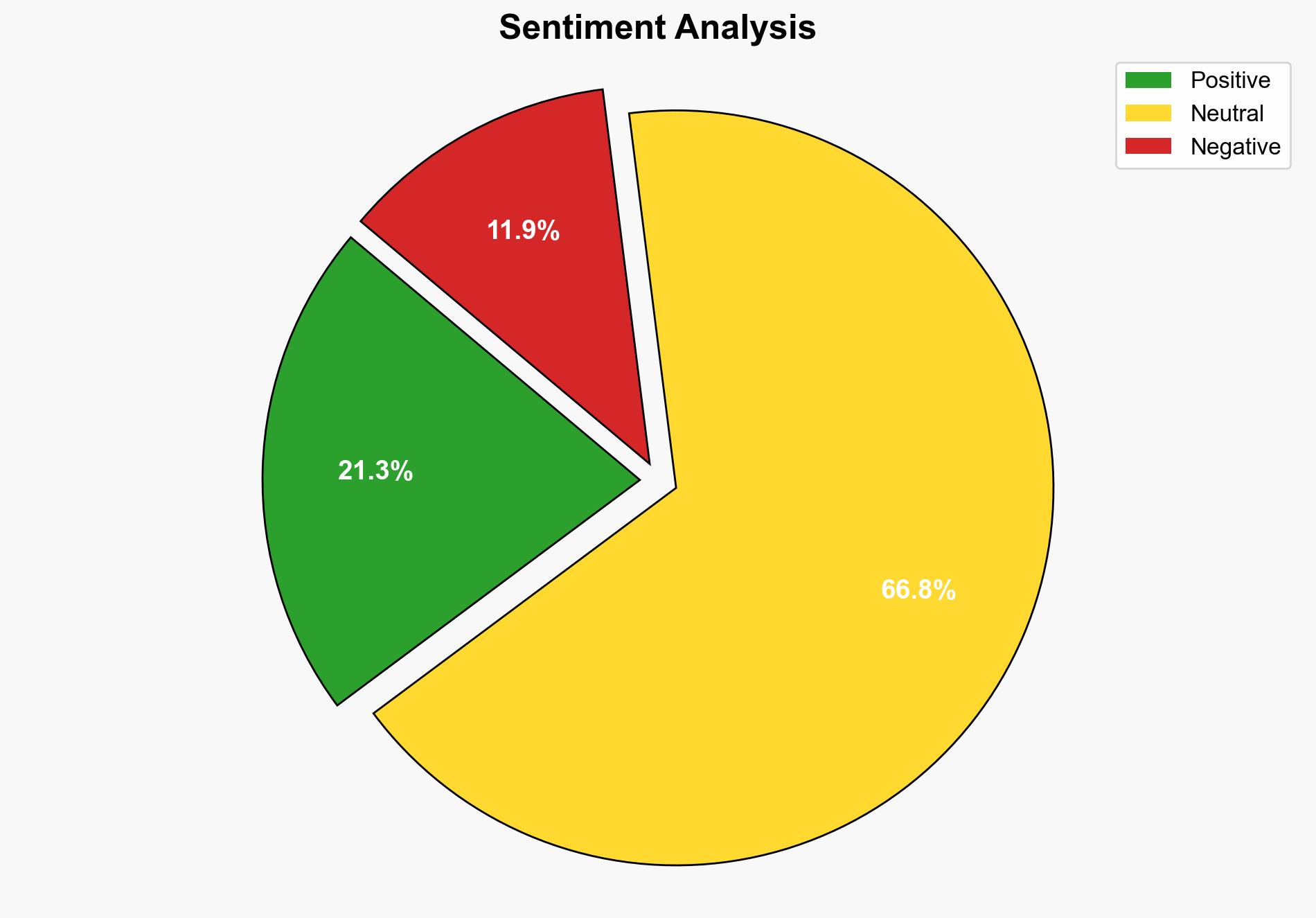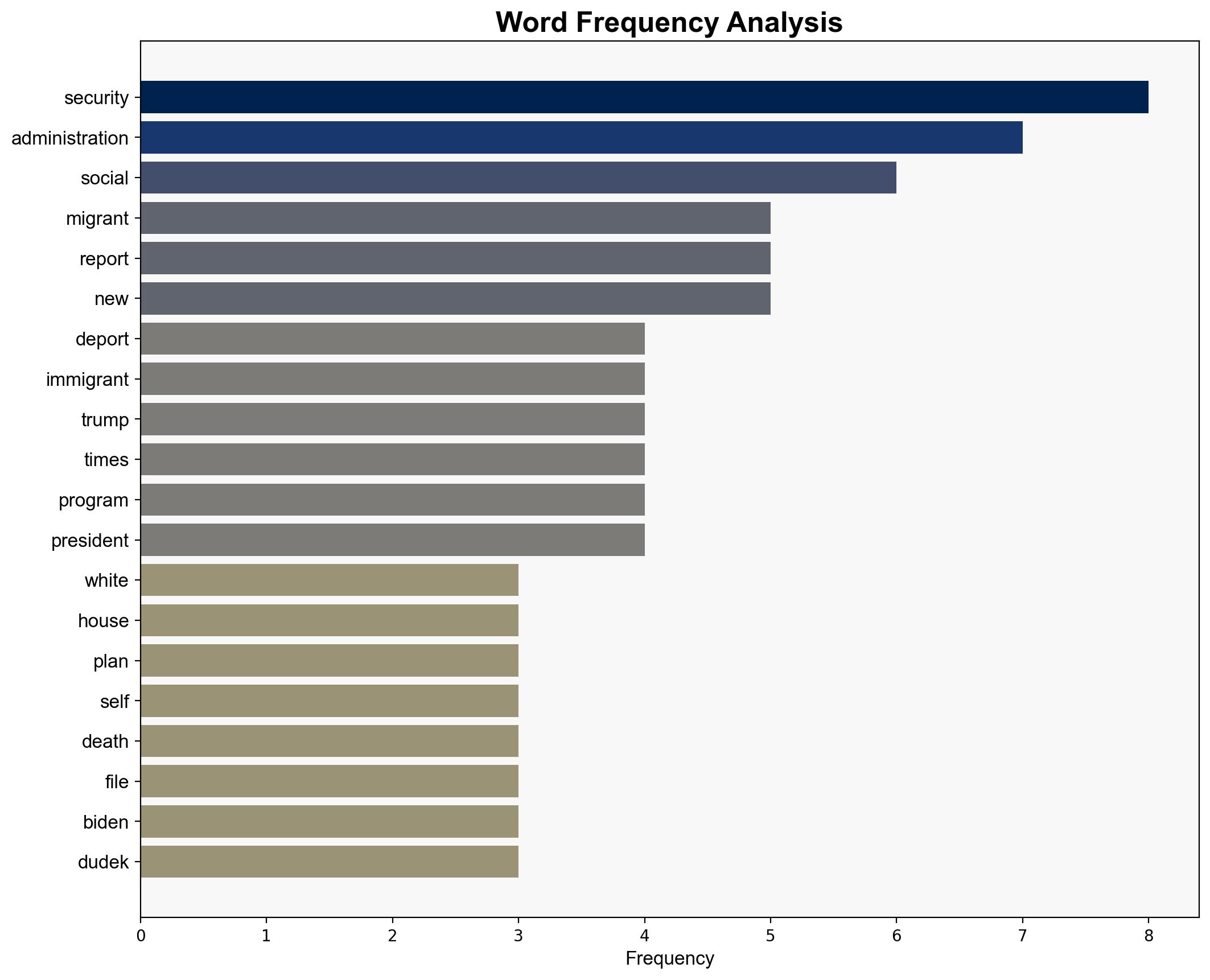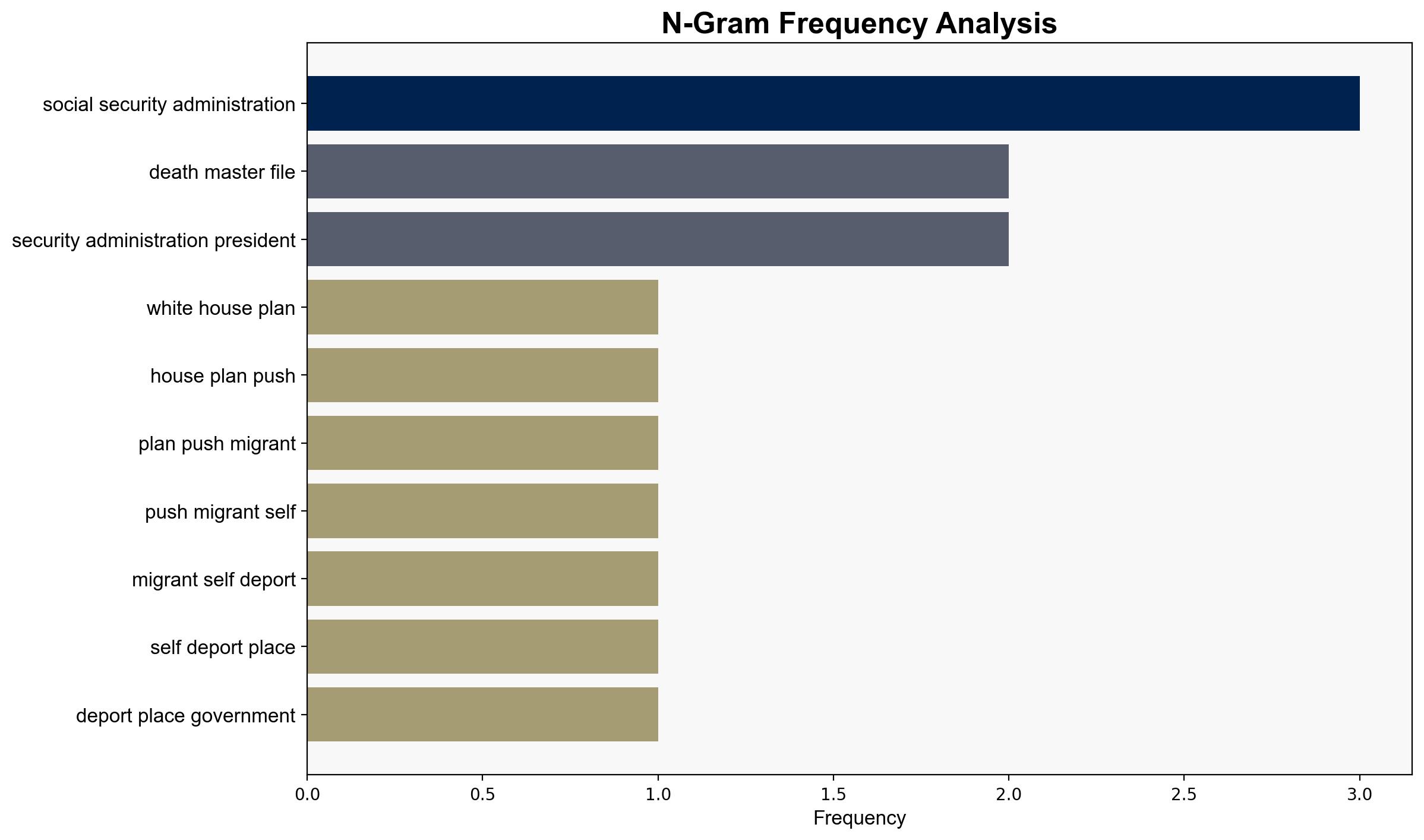White House Plan Would Push Migrants to Self-Deport by Placing Government ID Number in ‘Death Master File’ Report – Westernjournal.com
Published on: 2025-04-11
Intelligence Report: White House Plan Would Push Migrants to Self-Deport by Placing Government ID Number in ‘Death Master File’ Report – Westernjournal.com
1. BLUF (Bottom Line Up Front)
The White House, under the Trump administration, is reportedly implementing a strategy to encourage self-deportation of migrants by placing their government ID numbers in the Social Security Administration’s “death master file.” This action aims to cut off financial access and benefits for approximately 1.4 million migrants who entered the U.S. through programs now canceled. The strategy is intended to fulfill immigration policy goals by removing financial incentives for illegal residency.
2. Detailed Analysis
The following structured analytic techniques have been applied for this analysis:
General Analysis
The plan involves using the “death master file” to restrict access to financial services and government benefits for migrants who entered under specific programs. This approach targets individuals from Nicaragua, Venezuela, and Haiti, as well as those who used the CBP One app for work permits. The strategy is expected to impact 6,300 individuals initially, with potential expansion. The plan has sparked controversy, with some viewing it as a necessary enforcement measure, while others criticize it as excessively punitive.
3. Implications and Strategic Risks
The implementation of this strategy poses several risks:
- National Security: Potential for increased tensions and backlash from affected communities and international entities.
- Regional Stability: Strain on diplomatic relations with countries of origin, particularly in Latin America.
- Economic Interests: Disruption in labor markets and potential negative impacts on sectors reliant on migrant labor.
4. Recommendations and Outlook
Recommendations:
- Conduct a thorough impact assessment to evaluate the potential economic and social consequences of the strategy.
- Engage with international partners to address potential diplomatic concerns and foster cooperative solutions.
- Consider alternative measures that balance enforcement with humanitarian considerations.
Outlook:
Best-case scenario: The strategy effectively deters illegal immigration without significant adverse effects on diplomatic or economic fronts.
Worst-case scenario: The plan leads to heightened tensions, economic disruptions, and international criticism.
Most likely outcome: Mixed results with partial success in enforcement but challenges in managing diplomatic and economic repercussions.
5. Key Individuals and Entities
Significant individuals mentioned in the report include Leland Dudek, Kristi Noem, Elizabeth Huston, Martin O’Malley, and Andrew Biggs. The report also references the Social Security Administration, Department of Homeland Security, and Commerce Department.




